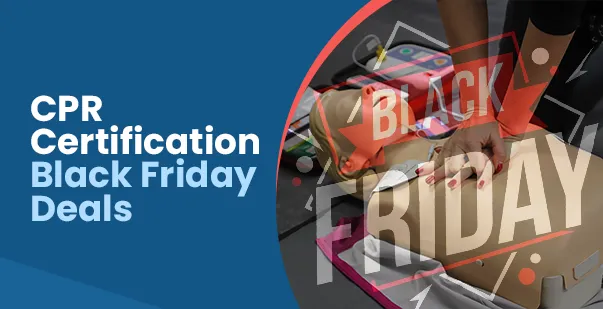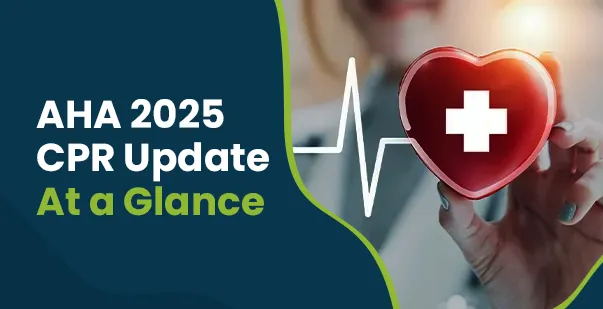Woke up with a painful, tingling blister on your lip? That’s a cold sore making an unwelcome appearance. Over 64% of the global population under 50 carries the herpes simplex virus type 1 (HSV-1), which causes these pesky sores. They often show up at the worst times, triggered by stress, a weak immune system, or even too much sun exposure. While cold sores usually heal on their own in 7 to 10 days, nobody wants to wait that long, especially when there’s an important event around the corner.
The good news is that there are ways to speed up the healing process and reduce discomfort. From antiviral treatments to home remedies that actually work, taking the right steps early can help you get rid of the sore quickly. So, if you are looking for the fastest way to get rid of a cold sore, keep reading to know what cold sores are and, more importantly, what steps you should follow.
What is a Cold Sore?
Cold sores are caused by the herpes simplex virus (HSV-1), which typically affects the area around your mouth. The virus can lie dormant in your body for years, reactivating due to triggers like stress, illness, fatigue, or even too much sun exposure. If you’ve had one cold sore, the virus remains in your system so that future outbreaks can occur.
Cold sores are particularly common in those between 15-49 years old, but they can appear at any age. According to the Centers for Disease Control and Prevention, 1 out of every 5 people will experience a cold sore outbreak at some point in their lives. Here are some symptoms to watch out for,
- Itching or tingling: Before a cold sore even appears, you might feel a slight itching or burning sensation on your lips or around your mouth.
- Redness or swelling: The area may become swollen and red, signaling the onset of the sore.
- Painful blisters: As the cold sore develops, painful blisters will form that break open and crust over as they heal.
Read more: Spring Allergies & Heart Risks: The Hidden Connection
How To Get Rid Of A Cold Sore In 24 Hours
Cold sores might be common, but they don’t have to stay around for long. By staying proactive and knowledgeable, you can stop a cold sore in its tracks and reclaim your confidence. The next time that telltale tingling sensation appears, here are some effective cold sore treatments you can try to get back to feeling like yourself.
Start with Antiviral Medications
One of the fastest and most effective ways to treat a cold sore is with antiviral medications. You can take it orally or apply it topically. The medications work by preventing the herpes simplex virus from replicating. Common antiviral medications include Acyclovir (Zovirax). Valacyclovir (Valtrex) and Famciclovir (Famvir). Research shows that starting antiviral treatment within the first 24 to 48 hours of noticing a cold sore can reduce its duration by about one to two days.
Over-the-Counter Creams
If you can’t get a prescription for antiviral medications right away, over-the-counter creams such as docosanol (Abreva) can help. These creams don’t completely eliminate the virus, but they can help reduce symptoms and speed up healing when applied early enough. According to a study published by the National Institutes of Health, docosanol has been found to reduce the duration of cold sores by about 1 day when used early.
First Aid Training Made Easy
Learn essential first aid care from anywhere with our online course
Home Remedies That Can Help
While antiviral medications are the most effective treatments, there are a variety of home remedies that may help alleviate symptoms and promote faster healing. You can use these methods alongside medications or as a stand-alone treatment. It includes,
Cold Compress
Applying a cold compress to the affected area can help reduce swelling and discomfort. Cold therapy works by numbing the area, which can ease pain and reduce inflammation. Simply wrap a few ice cubes in a clean cloth and press them gently against the cold sore for 10 to 15 minutes, several times a day.
Aloe Vera
Aloe vera is well-known for its soothing properties, and it may help speed up the healing of cold sores. The gel extracted from the aloe vera plant has antiviral and anti-inflammatory properties, which can help reduce the pain and duration of the cold sore. Apply a small amount of fresh aloe vera gel directly onto the cold sore several times a day.
Lemon Balm (Melissa Officinalis)
Lemon balm, derived from the mint family, has shown promise as a remedy for cold sores. A study published in the journal Viruses found that topical application of lemon balm extract can help reduce the severity of cold sore symptoms and speed up healing time. It’s believed to work by inhibiting the replication of the herpes virus. To use lemon balm, apply a topical cream or ointment containing lemon balm extract directly to the affected area.
Tea Tree Oil
Tea tree oil is another natural remedy that may help treat cold sores. It has antiviral and anti-inflammatory properties that could help reduce swelling and speed up healing. However, tea tree oil should be diluted with a carrier oil (such as coconut oil or olive oil) to avoid skin irritation.
To use, mix a few drops of tea tree oil with a carrier oil and apply it directly to the cold sore. Be sure to do a patch test on a small area of your skin first to ensure you don’t have an adverse reaction.
Vitamin C and Zinc Supplements
Vitamin C and zinc are essential nutrients that support the immune system and can aid in wound healing. Taking vitamin C supplements can help boost your immune response, while zinc may help reduce the severity of outbreaks and promote faster healing. You can also apply zinc oxide cream to the cold sore to speed up recovery.
Honey
Honey, particularly Manuka honey, has been shown to have antiviral properties. A study published in Pharmaceutical (Basel) found that honey can help heal cold sores faster when applied topically due to its antimicrobial and moisturizing effects.
Read More: How to Identify Common Causes of Rashes in Adults
Preventive Measures for Cold Sores
A study published in the Journal of Clinical and Aesthetic Dermatology in 2015 found that lifestyle changes, stress management, and early intervention with antiviral creams could significantly reduce the frequency of cold sore outbreaks. There is no surefire way to prevent cold sores from coming back. However, a few preventive measures can help.
Reduce Triggers
Several factors, such as stress or cold, usually trigger cold sores. Stress releases cortisol, the stress hormone, and impairs the immune function. With proper cold sore supportive therapy, be it massage or medication, you can relax your body and mind to defend against cold sores.
Take Care of your Face and Lips
Exposure to strong sunlight can leave your skin with cold sores. The UV rays in the sunlight light acn activate the virus, trigger a cold sore, and damage your skin. Apply sunscreen regularly and use lip balm with appropriate SPF to prevent cold sore outbreaks. Even though it is advisable year-round, be extra vigilant about application when the sunburn is strong.
Practice Good Hygiene
Even though it’s a no-brainer, especially after COVID-19, practice good hygiene to prevent cold sore episodes. Regularly wash your hands and do not touch your face if you are sore. If you are highly prone to the condition, step up your cold sore self-care practice. It will contain the spread of the virus, reduce the irritation in your skin, and prevent secondary infection.
Avoid Touching the Cold Sore
It’s tempting to touch or pick at a cold sore, but this can make things worse by introducing bacteria and increasing the risk of spreading the virus to other areas of your body (like your eyes) or to others. Always wash your hands after applying any ointments or creams to the cold sore.
Eat Right
When your immune system begins to flag, cold sores will often be around the corner. Even a simple winter cold can usher in the appearance of cold sores on your skin within a few days. To combat the risk, you need to focus on a healthy, balanced diet. Your immune system relies on being supplied with fresh food, including plenty of vegetables, fruits, and more.
Share Less
Sharing can sometimes mean caring. But, in certain situations, it also means increasing your risk of getting an infection. Avoid sharing items like water bottles, toothbrushes, razors, cutlery, cosmetics, or other items that might have touched your face with someone who has a cold sore. If you are prone to cold sores, it’s a good idea to sanitise your personal products after each use.
Read more: First Aid for Frostbite: Causes, Symptoms, and Treatment
From Pain to Relief: Speedy Cold Sore Solutions!
Cold sores can be incredibly frustrating to deal with. Even though about two-thirds of adults are estimated to be infected with HSV-I, nobody wants to walk around showing off their herpes status on their face. While they are common and often aren’t cause for concern, they don’t really feel great. It means if you have noticed a cold sore starting to form, chances are you are already looking for a way to get rid of it. Finding the right cold sore treatment for you might take a bit of trial and error. But with the above options, you can get the one that works best for you and get back to your healthy smile.
Whether you’re saving yourself from virus-induced risks or stepping in during a cardiac emergency, knowing first aid can be a lifesaver. Enroll in a life-saving first aid course and be ready to save a life when it matters most.
Online First Aid Training.
Prepare for real emergencies with our online First Aid Certification.
Frequently Asked Questions (FAQs)
Q1. What heals cold sores the fastest?
The fastest way to heal a cold sore is by starting treatment early. Over-the-counter creams like docosanol or antiviral medications such as acyclovir can speed up the healing process. Applying ice or a cold compress to the sore may reduce swelling and pain. Additionally, maintaining good hygiene and avoiding triggers like stress or sunlight can help prevent the cold sore from worsening. The sooner you begin treatment, the quicker it will heal.
Q2. How do you help your body fight cold sores?
To help your body fight cold sores, boost your immune system. This can be done by getting enough rest, staying hydrated, and eating a healthy diet rich in vitamins C and E. If you’re prone to outbreaks, taking antiviral medications prescribed by a doctor can prevent or reduce the severity. Additionally, managing stress is key since it can trigger cold sores. Using lip balms with sunscreen can also protect against sun-induced outbreaks.
Q3. Is it better to cover a cold sore or let it breathe?
While it may feel tempting to cover a cold sore, letting it breathe is often more effective. Air circulation helps the sore heal faster and reduces the risk of infection. However, covering it with a non-stick bandage or medicated patch can protect it from irritation and prevent the spread of the virus. If you’re out in public and prefer to conceal it, opt for a patch that allows for healing without trapping moisture, which can slow recovery.
Q4. Do cold sores heal faster, moist or dry?
Cold sores heal best when kept moist, as this prevents cracking and scabbing, which can delay the healing process. Using a lip balm or antiviral ointment helps to maintain moisture while promoting faster recovery. Drying out a cold sore can lead to painful cracks and extend healing time. Moisture keeps the skin intact, reducing the chance of secondary infections and ensuring the sore heals more quickly. Always avoid picking at the sore to speed healing.









